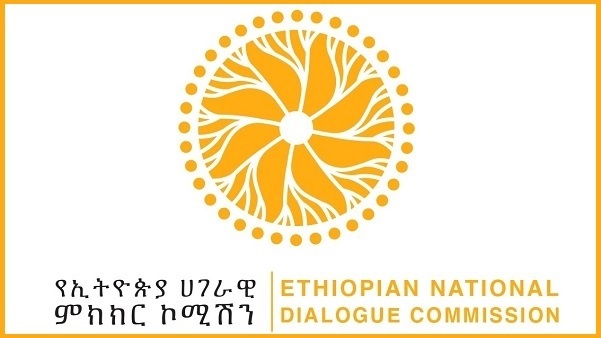
Currently, the Ethiopian National Dialogue finalizes preparations to conduct the national dialogue. Thus, the commission is identifying participants of the dialogue carefully so as to represent all segments of the society.
Experts from the Commission also underscored that the national dialogue serves as a platform for constructive discussions and negotiations among various stakeholders. It enables different voices to be heard, facilitates consensus-building, and promotes the shared understanding needed for sustainable peace and development. In Ethiopia, national dialogue is essential to address historical grievances, build trust among different ethnic groups, and establish a foundation for a more inclusive and democratic society.
In this regard, Civic Society Organizations (CSOs) play a vital role in facilitating national dialogue in Ethiopia. They serve as intermediaries between and among the government, civil society, and communities. They can provide a neutral and inclusive space for dialogue, create platforms for open discussions, and ensure that marginalized voices are heard. They also actively engage in promoting transparency, accountability, and respect for human rights throughout the dialogue process.
Moreover, CSOs play a crucial role in fostering democratic governance, promoting social justice, and encouraging citizen participation in Ethiopia. As the country undergoes significant political, social, and economic transformations, the need for effective national dialogue becomes increasingly evident.
Initially, CSOs primarily focused on economic development and community empowerment. However, over time, these organizations have transformed and expanded their scope to actively engage in advocating for democratic governance, human rights, and social justice.
The role of CSOs in undertaking and facilitating national dialogue in Ethiopia is not underestimated. CSOs play a crucial role in promoting democratic values, social justice, and citizen participation in Ethiopia. These organizations are non-governmental and operate independently from the government. They work to address various societal issues, including human rights, education, healthcare, and environmental conservation.
Everyone agrees on the importance of having successful national dialogue in the current Ethiopian context. To this end, all segments of the society including CSOs and other institutions sought to showcase strategies to enhance the effectiveness of national dialogue, highlight successful case studies, and provide recommendations for strengthening their role in shaping the future of Ethiopia.
Recently, the Civic Society Organizations (CSOs) have affirmed their commitment to further bolster their involvement in facilitating the national dialogue process, which is deemed crucial in achieving sustainable peace within the nation.
They have also emphasized that the national dialogue will serve as a platform to foster consensus and address the underlying factors contributing to long-standing conflicts and disputes.
The presidents of the Ethiopian Teachers Association and Confederation of Ethiopian Trade Unions (CETU) stated that they are working together with the National Dialogue Commission for the successful conduct of the upcoming dialogue process.
President of the Ethiopian Teachers Association, Yohannes Benti told local media that the national dialogue is instrumental to bring lasting peace in Ethiopia as it strives to address the root causes of conflict.
Thus, he stressed that those who claim to be involved in nation’s affairs are expected to fulfill their citizenship obligations by discussing and actively participating in the process.
The President reiterated that the association is working to discharge its role by using this notable opportunity to help the efforts achieve lasting peace.
The Association has signed an agreement document with the Commission and is working to participate in the dialogue through structures at all levels, he elaborated.
President of Confederation of Ethiopian Trade Unions (CETU) Kassahun Follo on his part said that, the Union has been participating in the process since the establishment of the Commission. The Union also participated in selection of participants, he said.
In order to accelerate the economic development of the country, creating a common understanding on major affairs of the country is irreplaceable and should be prioritized, the President stressed.
Noting that the dialogue will not only be a one-time event, but also a forum where it should be practiced to resolving differences through dialogue, Kassahun underscored.
The Ethiopian National Dialogue Commission was established with 11 commissioners by the House of People’s Representatives to lead an independent, inclusive, and transparent national dialogue across the country.
The main objective of the commission is to facilitate consultations among various segments of the society on fundamental issues of the country by identifying the root causes of existing differences through dialogue.
Since its establishment, the commission has been carrying out various activities, engaging numerous stakeholders at federal and regional levels including civic societies.
Accordingly, CSOs’ involvement in national dialogue brings several advantages. Firstly, they have a deep understanding of the needs, concerns, and aspirations of the communities they work with, making them effective mediators. Secondly, CSOs foster inclusivity by actively involving marginalized groups, women, and youth in the dialogue process. Lastly, CSOs’ expertise in conflict resolution and capacity-building enhances the effectiveness and sustainability of national dialogue initiatives.
In sum, as Ethiopia continues its journey towards a more inclusive and participatory society, the role CSOs can play in promoting effective national dialogue will be incalculable. To ensure that national dialogue is truly representative and inclusive, CSOs must prioritize engaging marginalized groups and communities. This means actively reaching out to individuals who have historically been excluded from decision-making processes, such as women, youth, ethnic minorities, and people with disabilities. By creating platforms and spaces for their voices to be heard and valued, CSOs can help bridge the gaps in society and foster a more equitable, inclusive and participatory dialogue.
BY TEWODROS KASSA
THE ETHIOPIAN HERALD TUESDAY 16 JANUARY 2024





